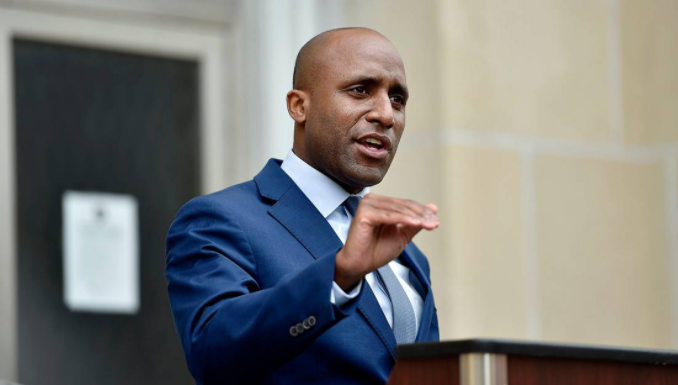A UMKC criminal justice professor believes Mayor Lucas’s new oversight measures for KCPD are steps in the right direction, but that there is much more to be done.
The measures, which were proposed amidst the unrest following George Floyd’s death at the hands of Minneapolis police, are supposed to ensure transparency with the public, improve the community relationship with police and establish more accountability within the department.
“I have spent a significant amount of time listening to Kansas Citians this week who all share the same message: we are tired of waiting for change,” Mayor Lucas said in the announcement. “I hear these concerns. We must do better.”
The Board of Police Commissioners, which is responsible for the operation of KCPD, approved all of the measures proposed by Mayor Lucas in an emergency board meeting. The KCPD is one of the few municipal police departments in the country that is controlled by the state government.
These new changes require KCPD to reverse its current policy and begin sending probable cause statements to the relevant county prosecutor in cases of officer-involved shootings. However, Dr. Kenneth Novak of the UMKC Criminal Justice and Criminology department says that requiring officers to submit probable cause statements in every case does not make sense.
“Officers need to establish probable cause that a crime occurred before sending a statement to the prosecutor,” Novak said. “Requiring them to submit a statement in every case implies that they already have probable cause. If they were to have a third party review statements of fact to determine probable cause separately, whether that be the prosecutor or another department, that would make more sense.”
The new measures also require all officer-involved shootings and excessive force complaints in KCPD to be reviewed by another department, such as the FBI. However, Novak, who is a co-author of Police & Society, says that the reviewing department would most likely be highway patrol, because the FBI would only investigate a federal law issue within the department.
KCPD is now required to report to weekly city council meetings and update on ongoing community engagement efforts.
“Community engagement can mean a lot of different things,” said Novak. “Some engagement may be more meaningful than others. Even still, these community engagement efforts are not guaranteed to rebuild community trust.”
In addition, KCPD must review their use of tear gas and other projectiles, and come up with solutions for restricting their use.
“Healthy organizations routinely review protocols on how they engage the public,” Novak said. “This makes sense.”
KCPD must also have a codified process for whistleblowers to report misconduct of other officers to the Officer of Community Complaints and the Board of Police Commissioners. Novak notes that although it is necessary for whistleblowers to be protected, this policy may not encourage more officers to speak up about their peers’ behavior.
“Culture eats policy for lunch any day,” Novak said. “The blue wall of silence is very prevalent. Although an officer may know he won’t be fired for whistleblowing, he knows that he will probably be looked at differently by his peers for betraying that brotherhood.”
Although there are some questions about how these policies will play out, Novak says that they are a step in the right direction for rebuilding community relations.
“When citizens feel a decision is not transparent, it breeds distrust,” he said. “Transparency builds community trust, and these measures build transparency. Once that is achieved, we can reasonably assume that it will have an effect on trust within the community.”
However, Novak says that no one can cannot assume the issue is finished.
“All of them are steps in the right direction, but none of them are a silver bullet. We have to keep introducing policies and continue to work at these issues in order for them to be fixed.”
knbr94@mail.umkc.edu








